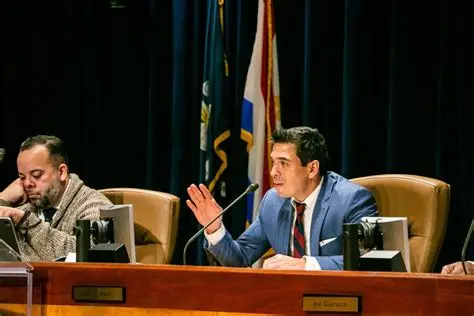By Kyshun Webster — Investigative Analysis
Blame for the bombshell deficit rests squarely on former CAO Gilbert Montaño. Period. Point blank.
When Chief Administrative Officer Gilbert Montaño confidently projected a $100 million surplus for fiscal 2025 on April 17, the New Orleans City Council exhaled in relief and blind belief. His calm demeanor and polished delivery had long made him one of Mayor LaToya Cantrell’s most trusted figures. Yet five months later, the Louisiana Legislative Auditor reported a $160 million deficit.
Critics in Albuquerque, New Mexico, might find that storyline familiar.
False Testimony and Over-Optimism
It is now evident that Montaño misled both the Council and the taxpaying public. His presentation and financials reflected over-optimism instead of prudent skepticism.
In today’s climate—where false statements before legislative bodies invite indictments and public outrage—it is fair to ask whether the Council will summon Montaño back for questioning. It has done so with other Black department leaders and even Mayor Cantrell. The double standard is glaring.
How the Deficit Grew
The state auditor’s report cites the same errors that marked Montaño’s past: overly ambitious revenue forecasts, unchecked overtime, and one-time funds used to pay recurring costs. Albuquerque once flagged identical problems during his tenure there.
Don’t be fooled by the claim that delayed federal reimbursements caused the deficit. This is mismanagement—plain and simple—and a failure of oversight by both the former CAO and the legislative body. The federal scapegoat narrative only hides the truth and shields leaders from accountability.
A Track Record Ignored
Before arriving in New Orleans in 2018, Montaño spent nearly a decade as a top aide to Albuquerque Mayor Richard Berry. Reports from the Associated Press and KOAT describe recurring shortfalls and one-time fixes—$24 million in 2017 and $40 million the next year.
The Cantrell transition team knew about those issues but still handed Montaño the city’s fiscal reins.
Old Habits, New City
Fast-forward to New Orleans. The same pattern re-emerged. The Legislative Auditor’s 2025 report found inflated revenue forecasts, runaway overtime, and reliance on temporary dollars to pay permanent bills. The much-touted Brass accounting platform, meant to modernize tracking, was incomplete and unreliable—another half-built bridge to nowhere.
Council members often called Montaño “the adult in the room.” But his reassuring tone dulled their skepticism. Staffers recall internal warnings ignored because his projections “looked right.”
Department heads describe a leader dismissive of local expertise and overly loyal to outside advisers. The result: a budget culture that prized presentation over precision. Those who questioned him were branded “alarmists.” Now, a Black woman—Romie Samuels—is left to clean up the mess and face the scrutiny that Montaño avoided.

The Numbers Game
Without a fully integrated system, City Hall could only see snapshots—not the city’s true fiscal health. That blindness created “lateral deficits,” shifting imbalances across departments until they could no longer be hidden.
Exit Strategy
Montaño’s departure this fall for a senior post at the Audubon Institute—whose funding comes partly from taxpayers—coincided perfectly with the deficit’s discovery. His new salary reportedly exceeds his City Hall pay, an irony not lost on employees fearing missed paychecks.
The Cleanup Ahead
For Mayor-elect Helena Moreno, the task now is to close the fiscal gap and rebuild trust. That requires undoing years of rosy projections and shallow optimism.
Defenders will say Montaño managed through extraordinary times—pandemic, inflation, and erratic federal aid. True. But his pattern long predated those events. He did the same in Albuquerque.
The Lesson
Whether this was misplaced confidence or plain mismanagement, the outcome is the same: a city once promised stability now faces deep cuts, shaken trust, and uncertainty for public workers. Optimism without accountability always equals debt.
From his new office overlooking New Orleans, Montaño can likely see the city he left behind—and the fiscal storm still unfolding in his wake. God bless the Audubon Institute. They may have just inherited the city’s most expensive escape plan.


The City Of New Orleans should cut funding from Audubon Institute for four years.All council members knew this guy was over his head majority of them said it in private.We should not be surprised but some folks always receive a parachute for a soft landing.
Typical New Orleans politics, keep your head in the sand, take no responsibility and pass it on.
New Orleans culture also includes hiring unqualified yt men as Director of departments and paying them top dollar. I say this first had.
Well, well, well! Montaño does need to face the Council and the citizens and be called to account. He must have sold Audubon Institute a serious bill of goods. He must not have been vetted or someone owed someone a favor. And yet, there’s more layers of the onion to get peeled back. Get your Kleenex out for the tears yet to come,